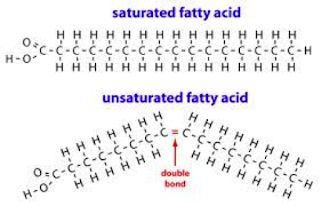Bacon has been a fad in the U.S. for the last several years. According to the market research group Information Resources, U.S. bacon sales
have climbed over 9.5 percent since 2013 to an all-time record of almost $4
billion dollars a
year!!!There
is even a food truck in San Francisco called Bacon Bacon, which only serves items composed of bacon. It boasts a
menu that includes a bacon scone, a bacon bacon cheese burger of course, bacon dipped in chocolate, a pork
belly sandwich with bacon jam, oh yeah and just a bouquet of bacon.

My Addiction: when I was pregnant with my 3-year-old son I was
devastated when the doctor told me that I was going to have to go on sodium
restriction towards the end of my pregnancy. The thought of no more bacon for
me was practically unbearable. The irony of that personally tragic loss of pork
intake for me was that shortly after that meeting with my doctor, my girlfriend
Jenn procured some “bacon ice cream” for me. I was dying to try it. Thankfully she saved a
small portion of it for me. I remember with great joy and satisfaction the
delight I felt when she visited me in the hospital the day after my son was
born with the gift of my bacon ice cream.
And you know what…was worth the wait. The salty and sweet combination
was out of this world. It truly is the small pleasures in life. On a side note,
bacon gum is not good.

So, why do American love bacon so
much? Other countries clearly do not idealize the pork belly as much as we do.
I even read a blog post from
Marc
Lallanilla entitled “Does America Need a Bacon Intervention?”
Yes,
we very well may Mr. Lallanilla. Especially considering that the SF
Bacon Bacon truck is not an isolated
entity that has chosen to embrace all of the glorious offerings that bacon
bestows upon our taste buds. There are endless examples of restaurateurs that
have jumped on the bacon bandwagon.
Some
people say
“sex sells”, but I say “bacon
sells”! There are website committed to nothing but the reverence of bacon,
www.baconfreak.com, or
www.bacontoday.com. Not only do these
sites actually exist, but also they have a HUGE following and fan base. I have
even admittedly purchased a bacon flag and a box of Band-Aids with a bacon
design on them for my younger brother.
Bacon is salty, crunchy; meaty and
it has been a part of American culture since as long as anyone can remember. I
dare say that bacon isn’t going anywhere soon, despite the obvious health
implications of bacon addiction. When I
was growing up I remember watching the 1991 movie “City Slickers” where the
crusty old cowboy “Curly” passes away on the trail and then Billy Crystal’s
character says something like “the man had bacon at every meal, you just cant
do that!” It hard to believe that was almost 25 years ago, yikes. The point is
that even back then, before this “health revolution” we knew bacon wasn’t the
ideal choice for our health.

So here is the break down. One
serving of bacon is the equivalent to one slice or 8 grams and provides 43
calories, 3.3g fat, 1g saturated fat, 9mg cholesterol, 137 mg of sodium, and 3g
of protein. Who has ever had 1 piece of bacon and said, “Yeah, no thanks I’m
good with just one”? Nobody of course, unless you don’t eat meat, then you get
a free pass on this entire article. The reality is that bacon is the bomb and
that most of us consume it gluttonously.
I often get asked if turkey bacon
is any better for your health. Well here is the same breakdown for turkey bacon.
For the identical 1 slice portion you consume 31 calories, 2.23g of fat, .65g
saturated fat, 8g of cholesterol, 2.4g of protein, and a whopping 132mg of
sodium. It would appear that you aren’t saving yourself a significant amount of
anything, so for my money I’ll stick with the real thing. My good friend Erin (RN), gets the award for
the bacon quote of the day because it fits so well here. She sent me a text
saying “I like regular bacon over
turkey bacon because bacon doesn't come from a turkey- it's a pig!!”

A word for the health conscious, please
don’t let my utter love of bacon shadow the truth about the health status of
salted pork products. Bacon is not good for you. Gasp, there I said it
(thankfully not out loud). It is infused with saturated fat, can lead to
cardiovascular disease, hypertension, high cholesterol, and even made it to
number 3 on the Top 10 Foods Highest in Sodium list.

If you are like me, knowing the
unfortunate truths about bacon will not dissuade you from paying tribute to the
bacon gods once in a while. Here is what I recommend to get your fix without ruining
all your hard work. Moderation! I know this is a common theme in my blog (like
portion control), but if someone who clearly loves bacon as much as I do can
restrain themselves…then so can you! Try prosciutto, bacons classier cousin.
It’s lighter and leaner, but still gives a bacon-like flavor. Cook only a piece
or two of bacon at a time and crumble it on top of your salad or omelet instead
of cooking the entire package and gorging on it. The good news is that it has a
strong flavor, so a little bit can go a log way in satisfying your craving. Oh
and on a side note, when you are camping its ok to hate the people from another
campsite who get up early and cook bacon. It fills the entire campground with
the intoxicating smell. They suck.











